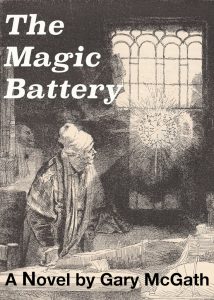Terry Pratchett’s Discworld novels combine humor with commentary on serious issues. My favorite in the series is Small Gods. It doesn’t have a close connection with any other Discworld book. Its time period is earlier than most of them, except for Pyramids.
If you haven’t read any Discworld books, you should! In brief, Discworld is a flat planet whose sun orbits around it. It lies on the backs of four gigantic elephants. They, in turn, stand on the back of Great A’Tuin, a turtle who swims through space, making even the elephants look small. However, if you live where the priests of the great god Om hold power, saying this could get you into trouble. They insist, in spite of all the evidence, that their world is a globe.
Discworld has many gods. They live on belief. If no one believes in them, they dwindle into helplessness and become the small gods. Om used to be a great god, but at the start of the story, he’s well on his way to becoming a small one. He has powerful priests, and Omnia’s terrified populace obeys the commandments of his prophets — but no one actually believes in him. They believe in the Quisition and its power to torture and kill heretics.
(more…)

 A movie was made of it in 1984. Ende didn’t like it. It has some scenes that live up to the book, which is saying a lot. As a whole, though, it fails. It stops about halfway through the novel and tacks on a nonsensical ending. The most gripping or frightening scenes from the book are omitted or toned down.
A movie was made of it in 1984. Ende didn’t like it. It has some scenes that live up to the book, which is saying a lot. As a whole, though, it fails. It stops about halfway through the novel and tacks on a nonsensical ending. The most gripping or frightening scenes from the book are omitted or toned down.